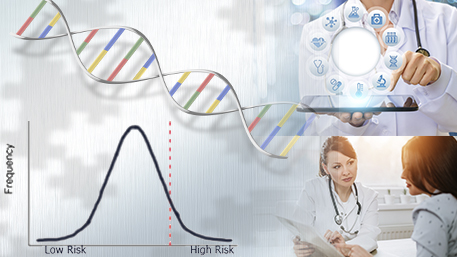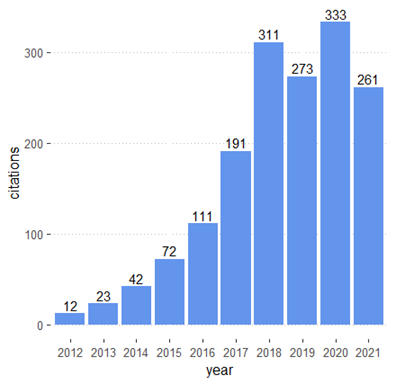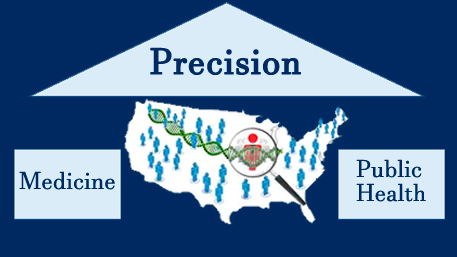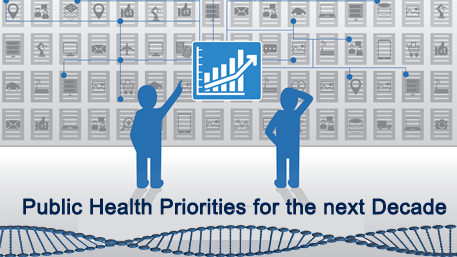Search Results
10 results for equity
Polygenic Risk Scores in Clinical Practice? Still Making the Case

Two recent systematic reviews show the lack of data on clinical utility of polygenic risk scores and major challenges in implementation. The Promise of Polygenic Risk Scores in Population Health Many common diseases such as cancer, diabetes, and heart disease, result from the combination of genetic factors and physical and social environmental factors. Genome-wide association
Posted on byUsing Pharmacogenomics to Better Understand the Role of Selected Medications and Birth Defect Risk

Through a funding opportunity from CDC’s Office of Genomics and Precision Public Health in collaboration with the Office of Advanced Molecular Detection, CDC’s Birth Defects Monitoring and Research Branch in the National Center on Birth Defects and Developmental Disabilities will conduct a 2-year project to gather genome-wide genotyping data to look at relationships between pharmacogenomic
Posted on byTracking the Scientific Literature on the Impact of Pharmacogenomics on Clinical Practice and Public Health

Pharmacogenomics (PGx) is an emerging field that investigates genetic differences in drug effectiveness and safety. PGx is an essential component of precision medicine and seeks to provide the right medication for the right person at the right time. Advances in PGx promise to improve treatment of many diseases such as cancer and cardiovascular disease. In
Posted on byPrecision Public Health in Action: Enhancing models to predict risk of adverse treatment outcomes in people with hemophilia

In collaboration with the CDC Office of Advanced Molecular Detection, the Office of Genomics and Precision Public Health recently funded the National Center on Birth Defects and Developmental Disabilities (NCBDDD) to strengthen public health capacity by introducing elements of human genomics into applied research on predicting inhibitor risk in people with hemophilia. Hemophilia refers to a group
Posted on byArtificial Intelligence in Medicine and Public Health: Prospects and Challenges Beyond the Pandemic

Though still in its infancy as a field, artificial intelligence (AI) is poised to transform the practice of medicine and the delivery of healthcare. Powered by breakthroughs in machine learning (ML) algorithms, enhanced computing power, and increasing data volume and storage capacity, AI has made noteworthy advances over the past decade across many medical subspecialties.
Posted on byPrecision Public Health in Action: New CDC Pilot Projects Integrate Human Genomics into Public Health Surveillance and Applied Research

In collaboration with the CDC Office of Advanced Molecular Detection, we recently launched a new, five-year initiative to strengthen public health capacity by introducing elements of human genomics into both public health surveillance and applied research. We report here on the successful launch of one of the initiative’s components. The Office of Genomics and Precision Public
Posted on byFrom Precision Medicine to Precision Public Health: The Dialogue Continues

A recent Nature article discusses the concept of precision public health (PPH) and raises concerns that too much emphasis on data and technology is “diverting attention away from regular public health.” In this post, we advance this important dialogue by focusing on two distinct components of PPH: its role in reaping the population health benefits
Posted on byThe Current Landscape of CDC Publications in Human Genomics and Public Health

In October 2021, the CDC Office of Genomics and Precision Public Health (OGPPH) launched a new, five-year initiative to strengthen public health capacity in genomics and precision medicine. The emergence of evidence-based genomic applications and lack of equity in their implementation in clinical and public health practice provided an important impetus for this initiative. To
Posted on byTracking the Scientific Literature on SARS-CoV-2 Variants Using the COVID-19 Genomics and Precision Health Knowledge Base

The first reports of SARS-CoV-2, the highly infectious virus causing COVID-19, swept across the globe in December 2019, prompting a burst of scientific activity. The rate of research and discovery intensified as the pandemic grew, resulting in a flood of publications in journals and on preprint servers around the world. More recently, SARS-CoV-2 variants have
Posted on by 1 CommentWhat should be the public health priorities in genomics and precision medicine in the next decade?

The CDC Office of Genomics and Precision Public Health is undergoing strategic planning to identify major opportunities for impact of public health action in human genomics and precision medicine in the next decade. As part of this process, we interviewed nine persons external to CDC from diverse backgrounds and organizations that represent the leading edge
Posted on by 1 Comment